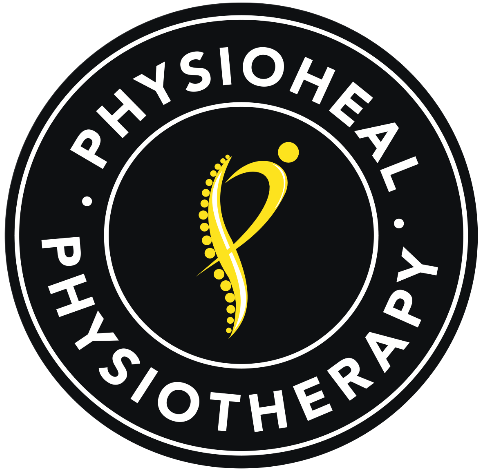Pregnancy is a remarkable journey, characterized by both physical and emotional changes. Staying active during this transformative phase is not just beneficial but essential for overall well-being. Among the various exercise forms, Pregnancy Pilates has emerged as a popular choice among expectant mothers. In this comprehensive guide, we will delve deep into the world of Pregnancy Pilates, exploring its safety, the manifold physical benefits it offers, and its profound positive impact on the mental and emotional well-being of expectant mothers.

Is Pilates Safe During Pregnancy?
Before embarking on any new exercise regimen during pregnancy, it is crucial to seek advice from your midwife or healthcare provider. Additionally, ensure that your Pilates instructor is specifically trained in antenatal Pilates to address the unique needs and stages of pregnancy. Certain exercises should be approached with caution or modified to align with your particular pregnancy phase.
Physical Benefits:
- Strengthening and Supporting the Core:
- Pregnancy leads to stretching and weakening of abdominal muscles, including the crucial pelvic floor muscles.
- Weak pelvic floor muscles can result in issues such as urinary incontinence during and after pregnancy.
- Pregnancy Pilates prioritizes the strengthening of both abdominal and pelvic floor muscles, leading to a more stable core.
- A strong core helps support the growing baby and reduces the risk of stress incontinence, providing crucial support to the back as well.
- Enhancing Mobility and Stability:
- Pregnancy triggers the release of relaxin, a hormone that relaxes ligaments in the body, especially in the pelvis.
- These changes can lead to increased flexibility and a potential risk of overstretching ligaments, causing injuries.
- Pregnancy Pilates focuses on controlled movements that strengthen deep stabilizing muscles and the glutes, effectively counterbalancing the heightened ligament laxity.
- This approach enhances mobility while ensuring stability and reducing the risk of injury.
- Restoring Balance:
- Pregnancy often affects a woman’s balance due to shifts in weight and changes in the body’s center of gravity.
- Pilates helps expectant mothers maintain balance by preserving a strong core and increasing the body’s ability to manage the added weight.
- Improving Posture:
- Posture is at the core of Pilates, as all exercises emphasize proper posture, strength, and coordination.
- Strengthening the core muscles also has a positive ripple effect on overall stability, ensuring better posture throughout pregnancy.
- Relieving Aches and Pains:
- Pregnancy frequently brings a host of discomforts, with lower back pain being a common complaint.
- Pregnancy Pilates can be a potent tool for preventing and alleviating back pain and Pelvic Girdle Pain (PGP), a condition some pregnant women experience.
- When executed correctly, pregnancy Pilates provides invaluable relief from PGP and reduces the strain on the back and pelvis.
- Preparing for Childbirth:
- Central to Pilates is the art of proper breathing.
- Learning effective breathing techniques and maintaining a rhythm during movements can be an asset during labor.
- The relaxation and focus on breathing fostered by Pilates can help expectant mothers stay calm and cope with the challenges of childbirth.
- Facilitating Postnatal Recovery:
- A remarkable aspect of pregnancy Pilates is its role in post-birth recovery.
- Abdominal muscles undergo considerable stretching and stress during pregnancy and labor, leaving them soft and lax post-birth.
- Participation in antenatal Pilates programs targets these muscles, helping them remain strong and toned during pregnancy.
- This strength and conditioning significantly ease the journey to regain pre-pregnancy shape after childbirth.
Psychological Benefits:
- Stress Reduction and Relaxation:
- Pregnancy can be a time of heightened stress and anxiety.
- Antenatal Pilates classes offer a sanctuary of relaxation and provide opportunities for expectant mothers to connect with others in similar situations.
- The camaraderie and shared experiences foster a sense of community and comfort, reducing stress and promoting relaxation.
- Boosting Self-Esteem:
- Exercise during pregnancy can boost self-esteem by instilling a sense of accomplishment and well-being.
- As the body undergoes changes, maintaining a regular exercise routine contributes to a more positive self-image.
- Minimizing Depression:
- Regular physical activity is known to be effective in reducing the risk of depression.
- Pilates contributes to this effect by promoting overall mental health and well-being.
- Positive Childbirth Experience:
- Breathing techniques and relaxation strategies learned through Pilates can significantly impact the childbirth experience.
- The ability to maintain a sense of calm during labor can lead to a more positive and empowering childbirth experience.
How We Can Help:
Physioheal Physiotherapy is proud to offer intimate and customized antenatal Pilates classes led by the highly qualified instructor, Dr. Divya Gaur. These classes cater to individual pregnancy stages and focus on strength, health, and preparation for childbirth. Physioheal stands out as the best physiotherapy center, with the renowned Dr. Divya Gaur in Gurgaon. For more information or to book a class, contact Physioheal at +91-9999259307 or conveniently schedule an appointment online today.
